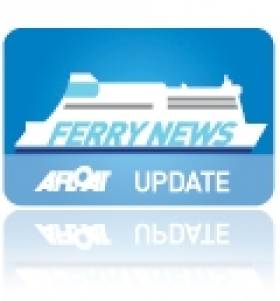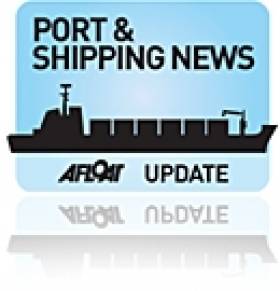Displaying items by tag: St. Patrick's Weekend
Early Start for 'Ferry Fortnight'
#FERRY NEWS – St.Patrick's Day coincides with the start of the UK's annual National Ferry Fortnight (17-30 March) campaign which includes the participation of over 50 routes, including those operating on the Irish Sea, writes Jehan Ashmore.
This year's event organised by the Passenger Shipping Association (PSA) is to be brought forward two months earlier instead of May. According to the PSA the change of dates was designed to "emphasise the great value of family ferry travel at a time when parents have a watchful eye on budgets".
A new official logo will front the campaign's website www.discoverferries.com which is supported by all ferry line members of the association. The two week showcase aims to heighten consumer and media awareness of the UK's extensive ferry firms route network.
PSA members include Brittany Ferries, Condor Ferries, DFDS Seaways, Hovertravel, Isle Of Man Steam Packet Company, Irish Ferries, LD Lines, P&O Ferries, Red Funnel, Stena Line and Wightlink.
The association estimate that around 35 million people, 8 million cars and 140,000 coaches were carried by ferries last year.
All three visiting vessels were to be made open to the public over the weekend while berthed alongside the Deep Water (Coal) Quay downriver of the East-Link Toll-Lift road bridge.
FGS Brandenburg is the leadship of the Type-123 'Brandenburg' class. For a photo of the 4,900 tonnes frigate arriving in the Grand Harbour in Valleta, the capital of Malta (in 2004) click here.
The 20,240 displacement tonnes FGS Berlin is also the leadship of her namesake class of auxiliary fuel replenishment/stores-ship. The 174-metre long Berlin class ship (see photo) also has the capability to convey containers. The last of the trio, FGS Rheinland-Pfalz (photo) is a Bremen class frigate of 3,680 tonnes.
Since the Libyan crisis started in late February, the Maltese capital has been frequently used as a strategic transitional hub-port for naval vessels, including several calls by the UK's Type 22 frigate HMS Cumberland (F85). Earlier this month the Type 42 destroyer HMS York (D98) was also conducted to assist fleeing UK and foreign nationals from Benghazi.
In addition to other navies, Valletta has been used by ferries chartered by governments to assist in the evacuation of thousands of fleeing foreigners, mostly from Europe, though many other emigrants from Africa and Asia remain stranded.

























































